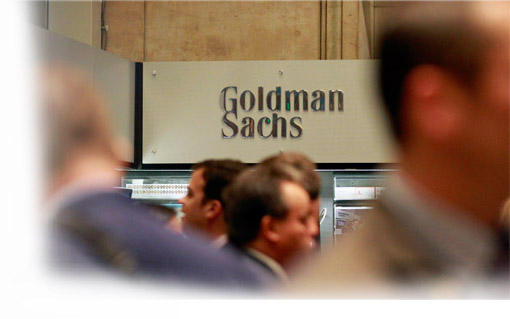How Greece entered the Euro
The audience of the film is again in Greece. They see how people incredulously look at German headlines: "Why do we have to bail out the lazy Greeks?" "Greece - their own  fault". The country had already cheated with its entry to the Euro and was unwilling to reform.
fault". The country had already cheated with its entry to the Euro and was unwilling to reform.
The film then shows the real story: In 1999, Greece was first not allowed to attain EU membership. Public debt was too high. To overcome this obstacle, a certain Lucas Papademos, CEO of the Greek Central Bank, organised a "tour de force". The banks Goldman Sachs, JP Morgan and United Bank of Switzerland (UBS) offered additional billions of loans to the state that did not appear in the state budget: Future profits from motorway tolls and airport taxes and the state lottery were "traded away" for these loans. With the help of the Goldman Sachs department that was headed by today's ECB boss Mario Draghi, additional debts of the public budget were transferred as long-term loans to the Greek Central Bank via the London letterbox company Titlos. In this way, Papademos managed to magically reduce the Greek public debt . And so the country was able to join the Eurozone with a big round of applause from the banks. Of course this was cheating. But the "swindler" Papademos then became the ECB's vice-president. Everyone always knew about the real level of Greek public debt. The EU statistics authority Eurostat had already made a detailed list in 2003 of the applied tricks inspired by Goldman Sachs. This was now also confirmed by Jean-Claude Juncker, President of the Euro Group: They only wanted to leave Germany's and France's good business in Greece undisturbed.
Themes
Article Index
Page 1 of 3








